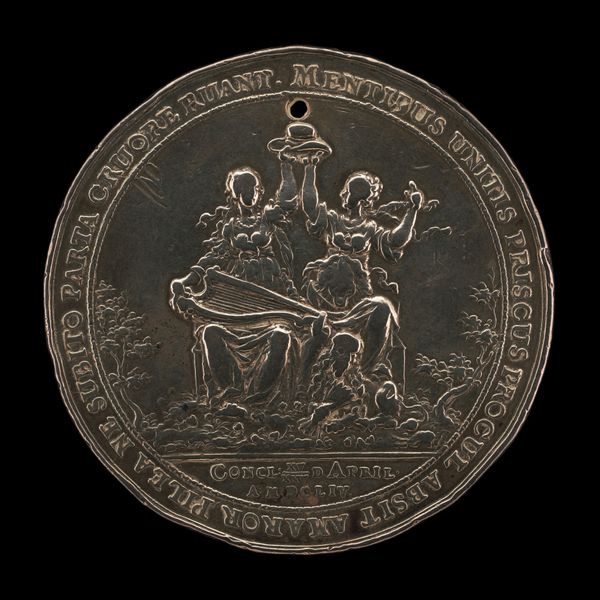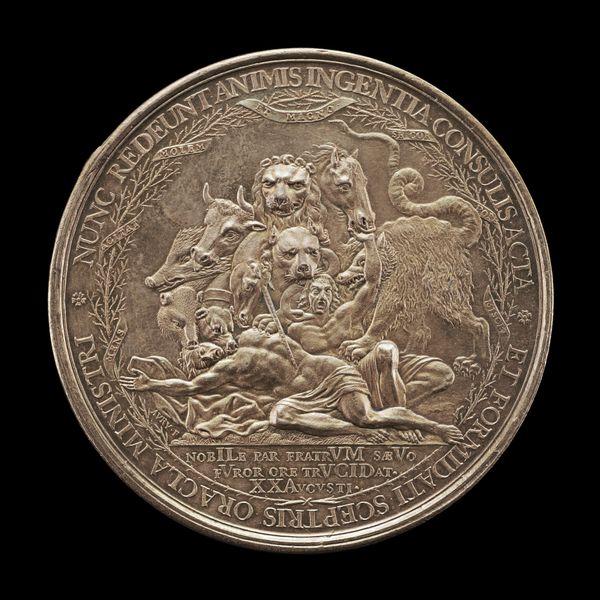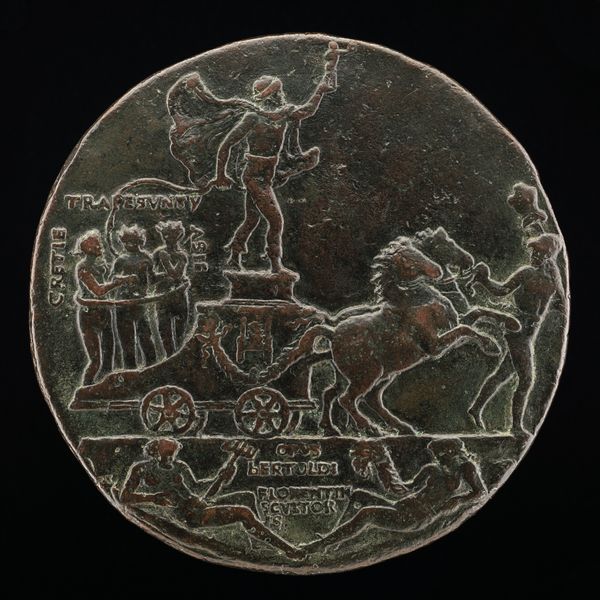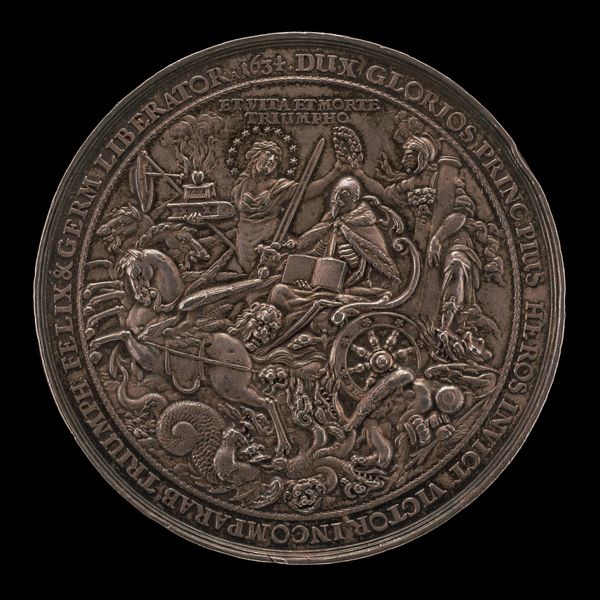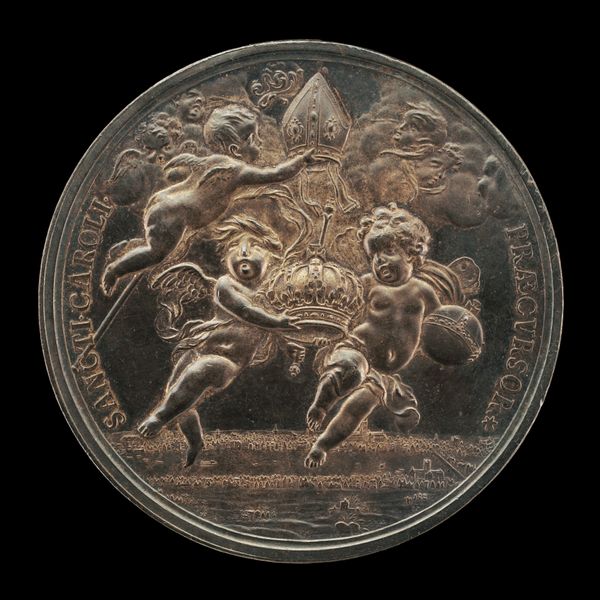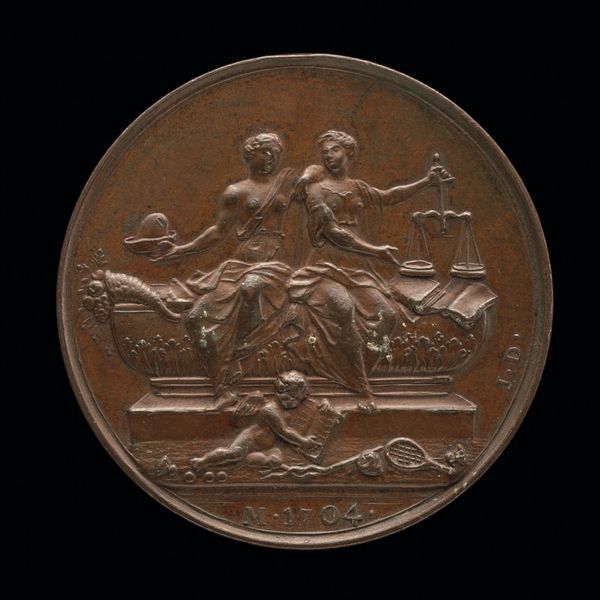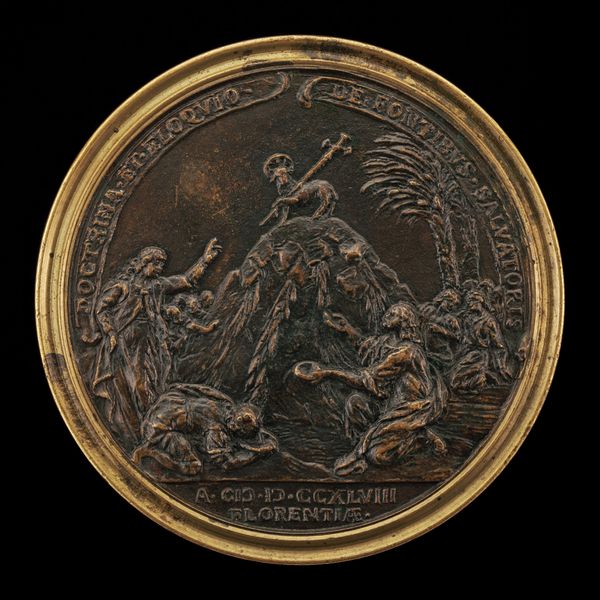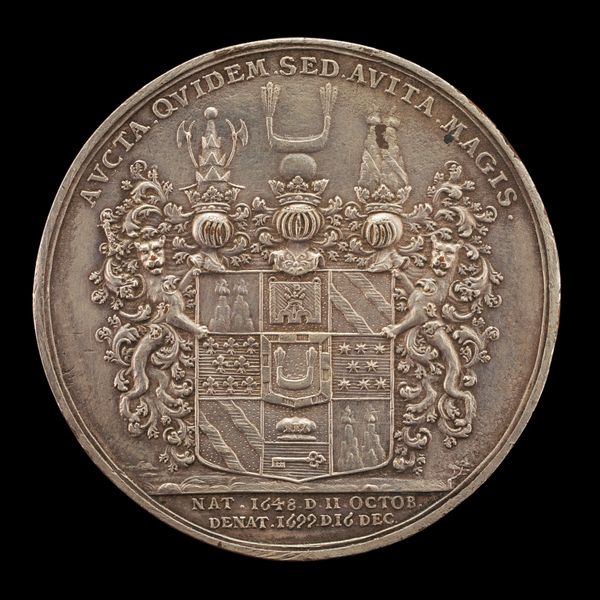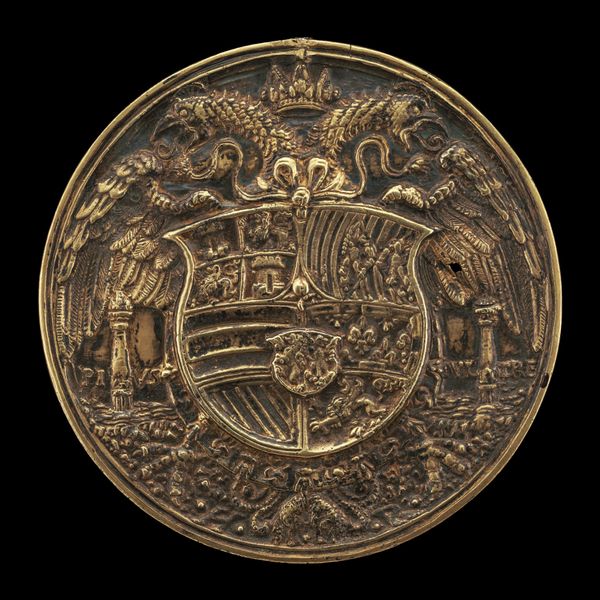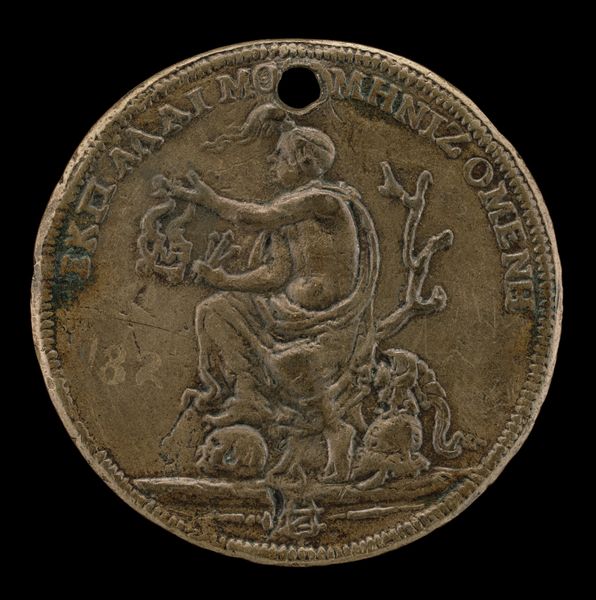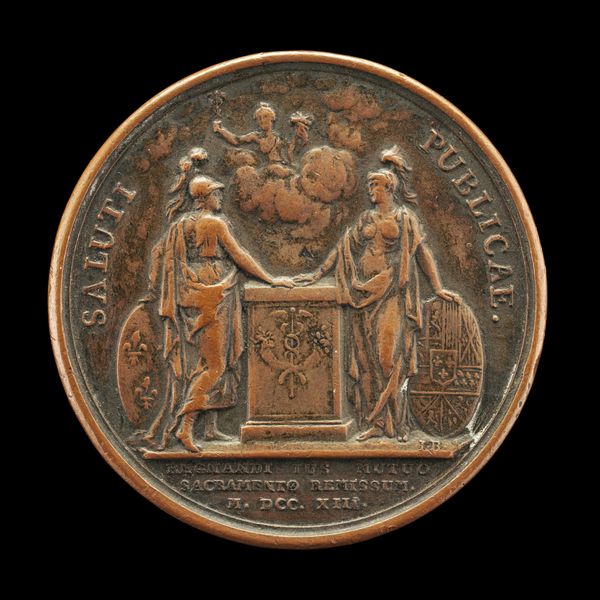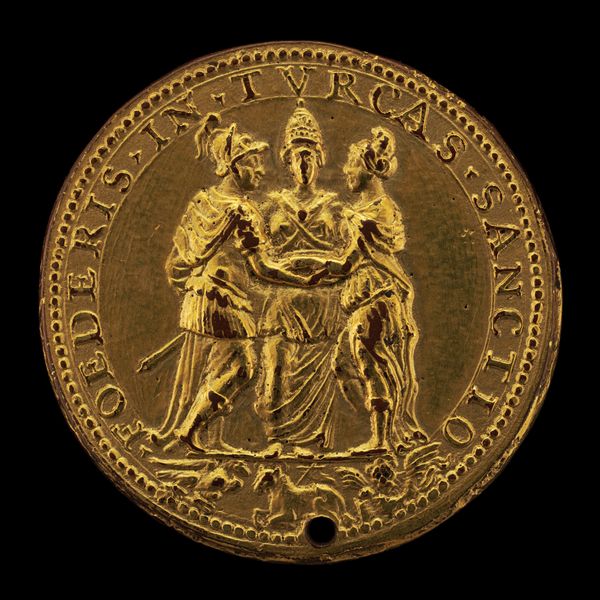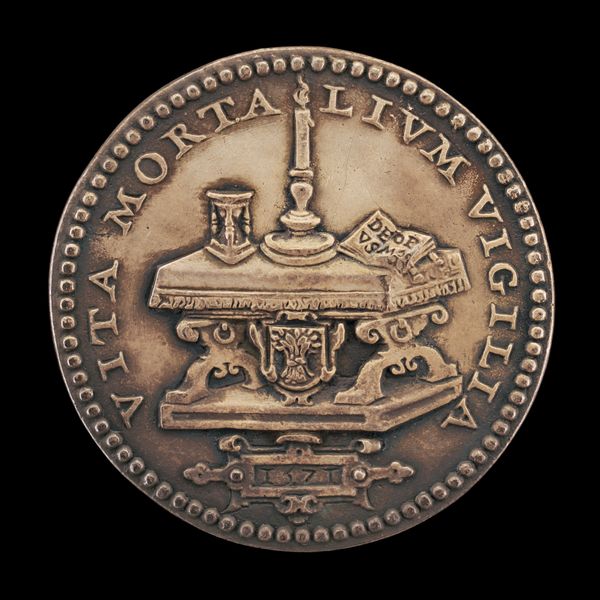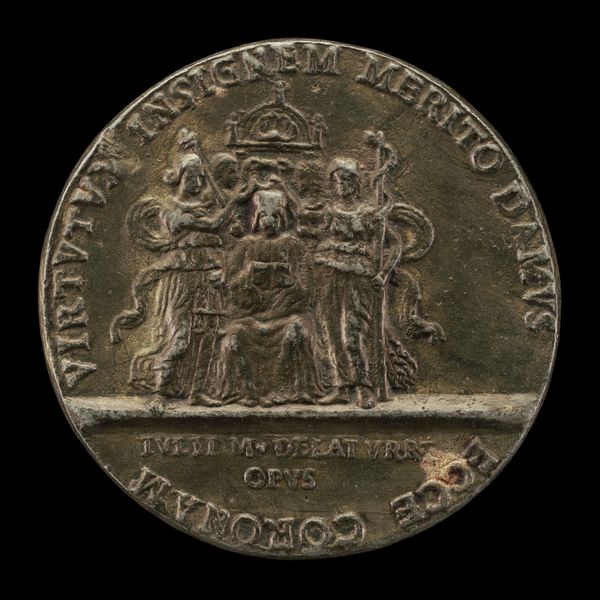![Marriage Altar [reverse] by Gysbert van Moelingen](/_next/image?url=https%3A%2F%2Fd2w8kbdekdi1gv.cloudfront.net%2FeyJidWNrZXQiOiAiYXJ0ZXJhLWltYWdlcy1idWNrZXQiLCAia2V5IjogImFydHdvcmtzLzY0MmYzM2RlLTQwNTUtNDJmZC04YTZmLTM2YWIyMDI0YjA3Yi82NDJmMzNkZS00MDU1LTQyZmQtOGE2Zi0zNmFiMjAyNGIwN2JfZnVsbC5qcGciLCAiZWRpdHMiOiB7InJlc2l6ZSI6IHsid2lkdGgiOiAxOTIwLCAiaGVpZ2h0IjogMTkyMCwgImZpdCI6ICJpbnNpZGUifX19&w=3840&q=75)
metal, relief, sculpture, engraving
#
neoclacissism
#
allegory
#
metal
#
stone
#
sculpture
#
relief
#
sculpture
#
history-painting
#
engraving
#
statue
Dimensions: overall (diameter): 3.7 cm (1 7/16 in.) gross weight: 18.92 gr (0.042 lb.) axis: 12:00
Copyright: National Gallery of Art: CC0 1.0
This silver medal, "Marriage Altar [reverse]," was created in 1767 by Gysbert van Moelingen. It commemorates a marriage in Berlin, yet the imagery invokes ideas about country, people, and delight. At the center, we see a burning altar, wreathed by vines. To its left, a broken column lies next to a shield; on the right, a theatrical mask rests on the ground. Above, two cherubs hold aloft flames and a laurel wreath. These symbols speak to ideas of power, performance, and pleasure in 18th-century Europe. They also address themes of the enlightenment. Consider how marriage, often a political transaction, became a source of public spectacle. The medal reflects the cultural values of its time, yet it also hints at underlying tensions between tradition and progress. How does this moment in history echo in our contemporary understanding of marriage and society?
Comments
No comments
Be the first to comment and join the conversation on the ultimate creative platform.
